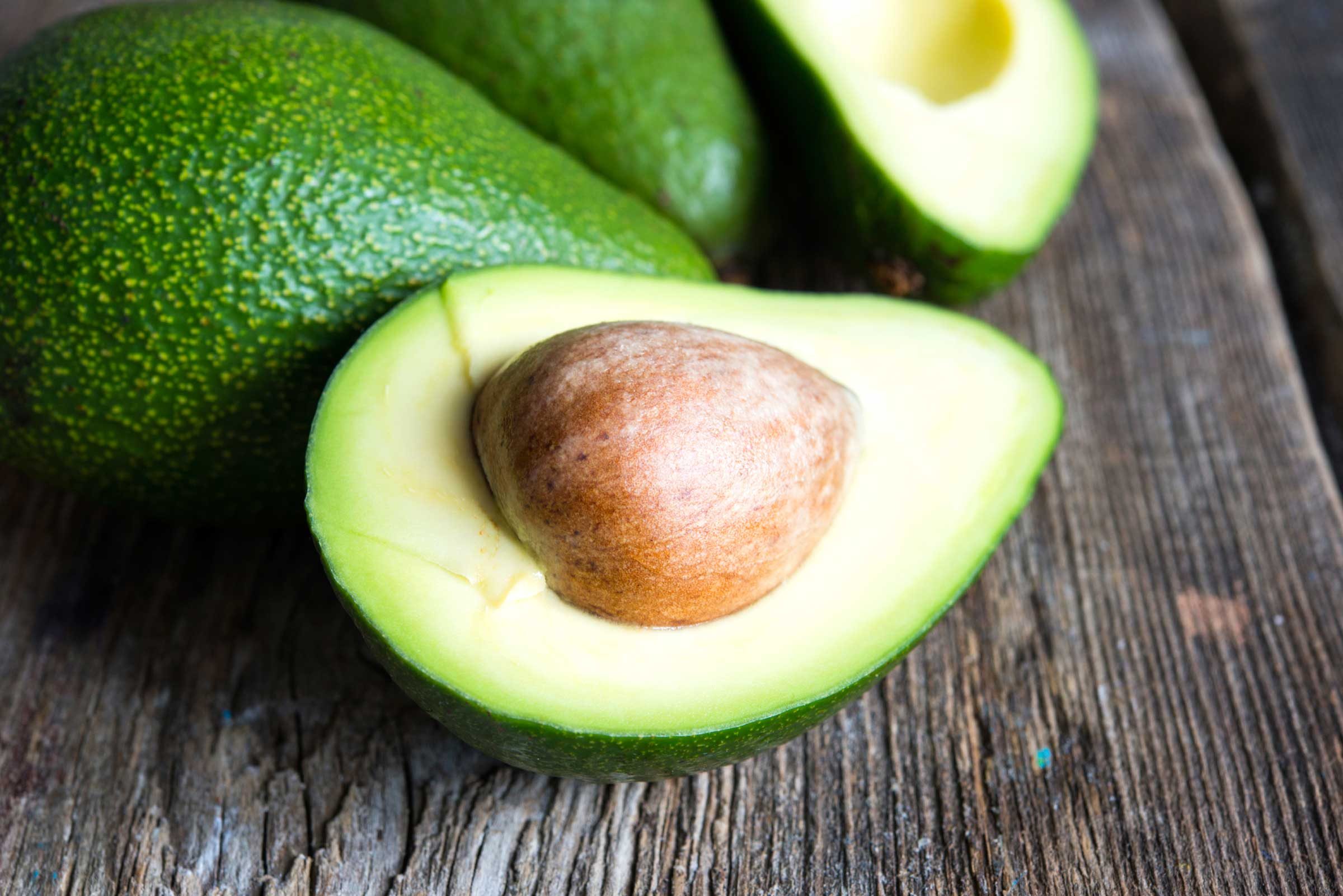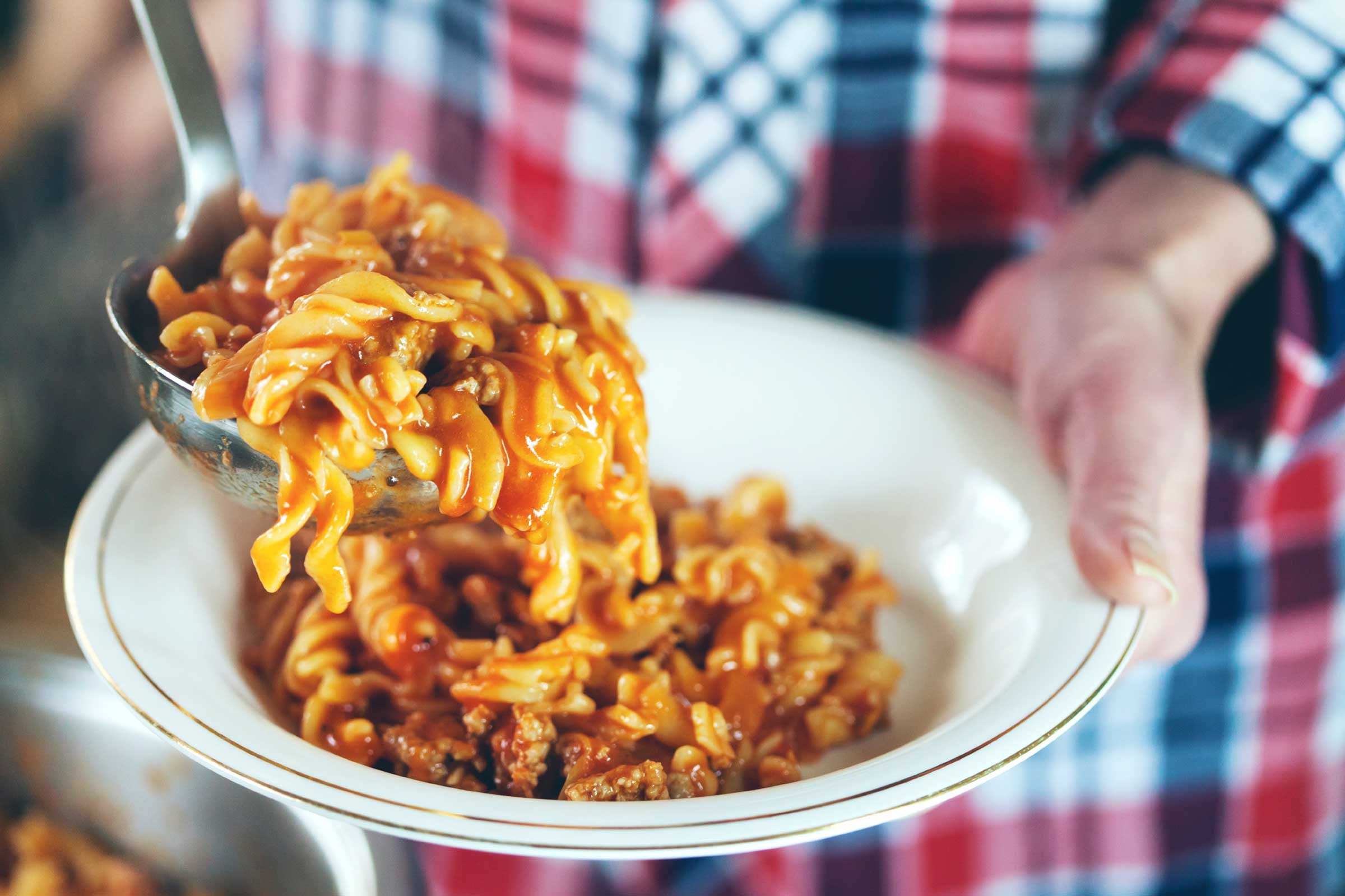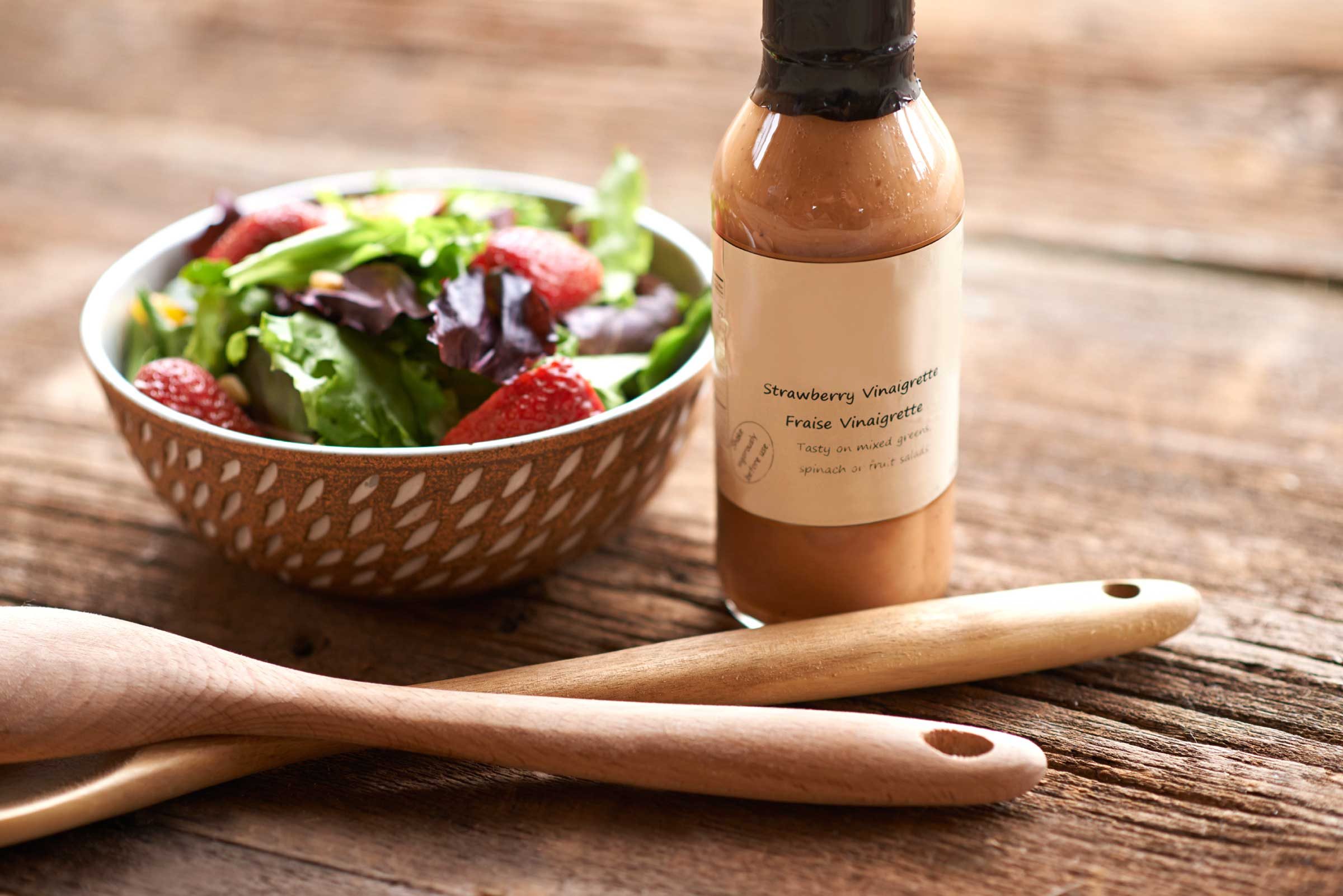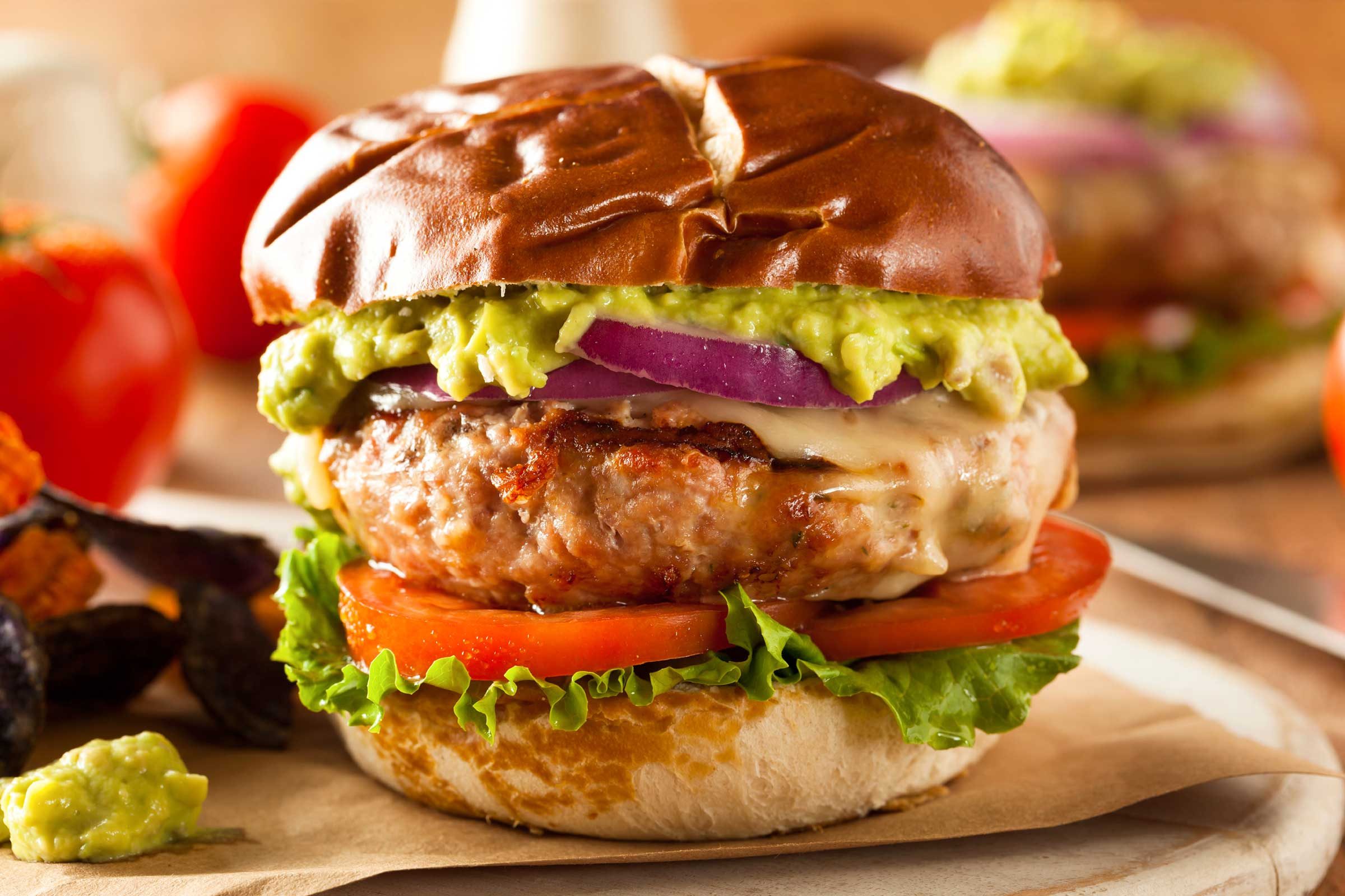
They OD on healthy fats
There’s no question that extra virgin olive oil, nuts, and avocados are incredibly good for you. “They’re packed with monounsaturated fat, a healthy fat that’s good for your heart,” says Keri Gans, RD, registered dietitian and author of The Small Change Diet. “But, for example, too many people think that the serving size of an avocado is the entire fruit when it’s actually one-fifth of an avocado. They think they’re making healthy choices, and they’re eating way too much.” It’s also easy to go overboard with nuts: a single serving fits into a mere shot glass. “Mixed nuts is a much better snack than a candy bar, but there is a point where too many calories will cause you to gain fat,” says Kristin Kirkpatrick, RD, a registered dietitian and wellness manager at the Cleveland Clinic Wellness Institute. Same goes for olive oil. “People put olive oil on their fish, their vegetables, and in their salad,” says Gans. “One tablespoon of olive oil is 120 calories, and all of a sudden you’re using way more than that.” While all of these healthy foods should have a place on your plate, be mindful of portion sizes. Here are other sneaky reasons you’re eating more than you think.

They buy everything organic
It may be more environmentally friendly to buy all organic. But if you’re doing it mainly to steer clear of pesticides, you may be wasting your money when it comes to certain types of produce. According to the Environmental Working Group’s latest “Clean Fifteen” list, avocados have the lowest pesticide load, followed by sweet corn, pineapples, cabbage, and frozen sweet peas, so you don’t necessarily need to go organic when those foods are on your list. Instead, save your cash for organic versions of more pesticide-laden foods, such as apples and these. Here are 13 things you never knew about organic food.

And they think organic = more nutritious
Organic doesn’t automatically equal healthy (we’re talking to you, organic brownies). Research shows that organic foods often have a “health halo” that makes even less-than-healthy organic options seem more nutritious than they are. A 2013 study found that just seeing the word “organic” on a label affects your perception of the food. Study participants rated organic cookies and yogurt as tasting lower in fat than the so-called “regular” version (even though it was also organic), and they incorrectly thought that the organic-labeled cookies and chips were more nutritious.

They assume cooking at home is always low-cal
Making your own meals is a great way to watch your calories since you know exactly what’s going into your food. In fact, a new study in the Journal of the Academy of Nutrition and Dietetics found that 92 percent of meals at restaurants have more calories than are recommended for the average person in a single sitting—1,205 calories per meal on average. But research from Cornell University’s Food and Brand Lab found that if you’re not paying close attention to portion sizes when cooking at home, you may be consuming more than you intended. After looking at the serving sizes and calories of 18 recipes that appeared in all seven editions of the popular cookbook, The Joy of Cooking, researchers found that in 14 out of 18 recipes, the number of calories had increased more than 40 percent over a 70-year period. Try eating less than the serving size the recipe suggests to avoid accidentally supersizing your meal.

They reach for non-fat versions of yogurt and peanut butter
When natural fats are removed from a food, they’re often replaced by sugar to add flavor. And: “You’re not saving that much fat—maybe one to two grams total—so it’s not even worth it,” says Gans. You’re also not saving big on calories either. For example, two tablespoons of regular smooth peanut butter contains about 191 calories. The same amount of the reduced-fat version: about 187 calories. “Fats help with satiety,” Gans says. “When you eliminate fat from a meal, you’re still going to be hungry.” Just be sure to cap it at two tablespoons of peanut butter, which is the recommended serving size. As far as yogurt, opt for a cup or less of the plain full-fat kind, rather than low-fat flavored yogurt, and add antioxidant-rich, fiber-filled berries, and a shot-glass-worth of nuts for flavor and texture, recommends Kirkpatrick.

And they always pick non-fat salad dressing
It sounds counterintuitive, but having some fat in your salad dressing is better for you. “Most people put salad dressing on plants, such as kale, romaine, tomatoes, and carrots, and a lot of those plant foods have fat-soluble vitamins, A, D, E, and K,” says Kirkpatrick. “We simply can’t absorb these vitamins well unless they’re in the presence of fat.” Here are other salad tricks for weight loss.

They nix beef burgers for the turkey version
Unless you get ground white meat from your local butcher, most turkey burgers you order in restaurants or find in a supermarket frozen foods section also include dark meat and skin, which tacks on fat and calories. “Don’t be fooled that the turkey burger is going to be your better choice,” says Gans. “If you did a lean sirloin, such as 93 percent lean, it’s going to be lower in fat and calories than a turkey burger.”

Egg whites are their brunch staple
Nutrition and heart-health experts have done a 180 on this one. Eggs are no longer the enemy when it comes to heart health. A new study in the American Journal of Clinical Nutrition found no association between eating one egg per day and adverse effects on cholesterol, including in people who are already susceptible to the effects of dietary cholesterol. That’s good news since the superfood breakfast staple is an excellent source of protein (6 grams) and is packed with vitamins and minerals, including vitamin D, B12, folate, as well as selenium and iron. Here are tricks to cook perfect eggs every time.